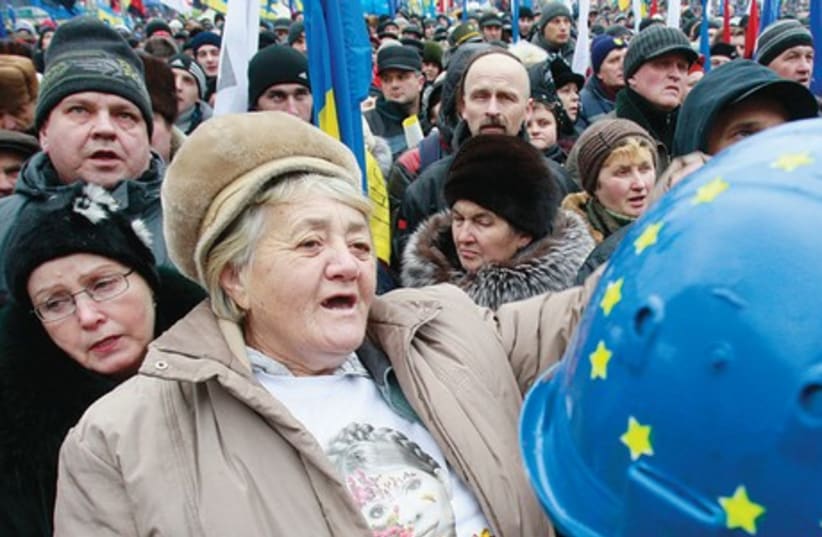From Kiev to Donetsk: Covering Ukraine’s journey from protests to civil war
Both nationalists and separatists pledge support and security to the Jewish community, but anti-Semitism is bubbling under the surface of each side and it is unclear where it will lead.
